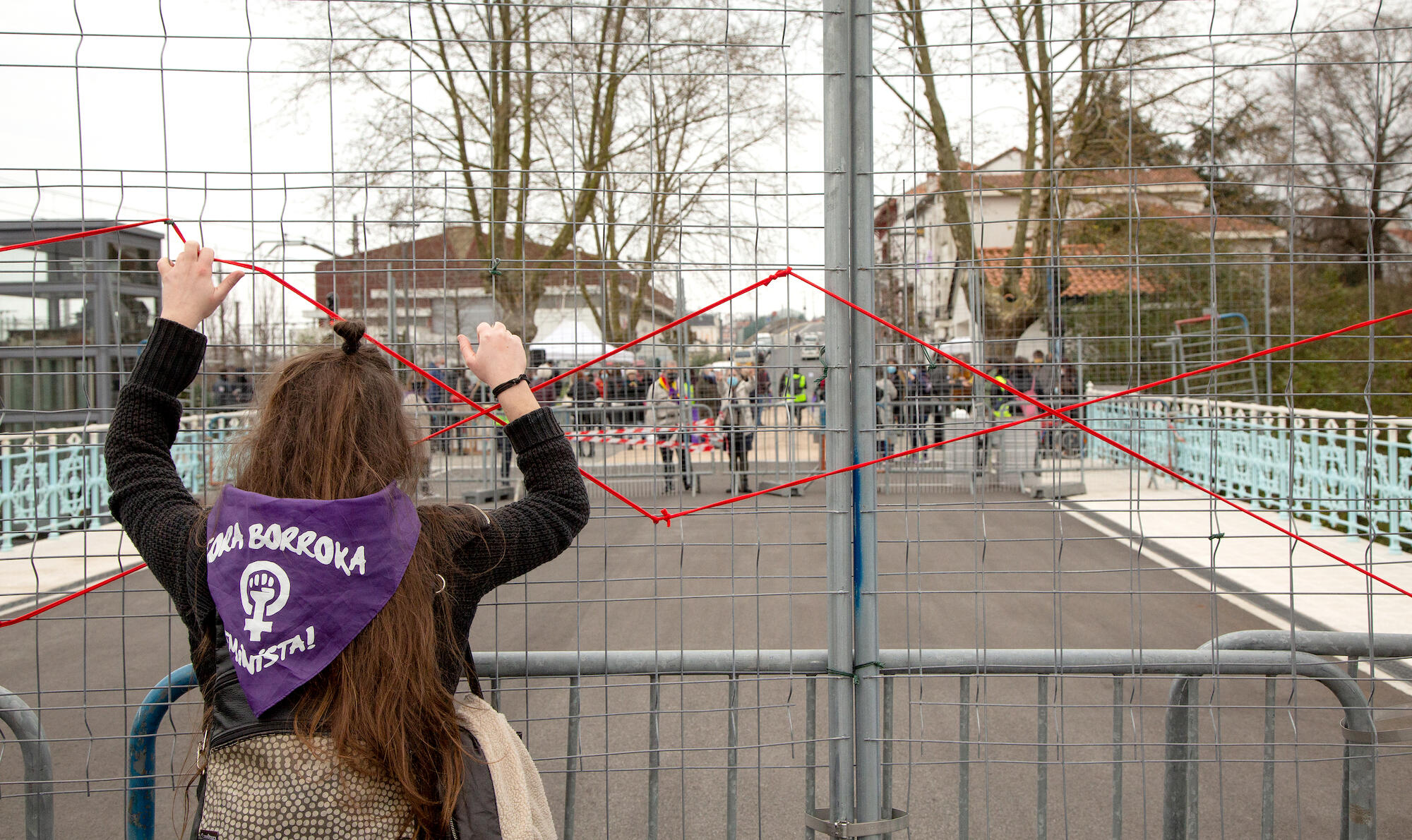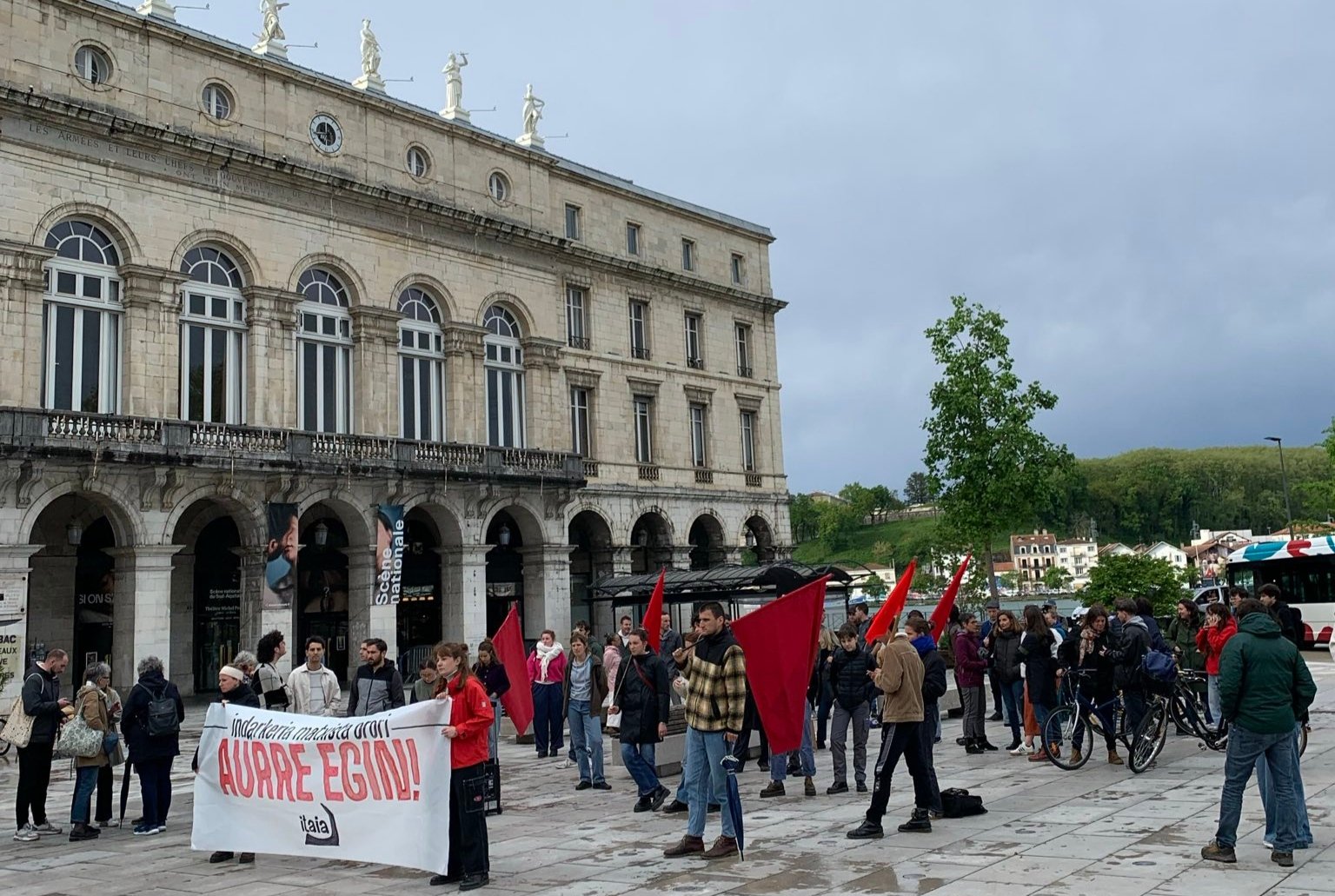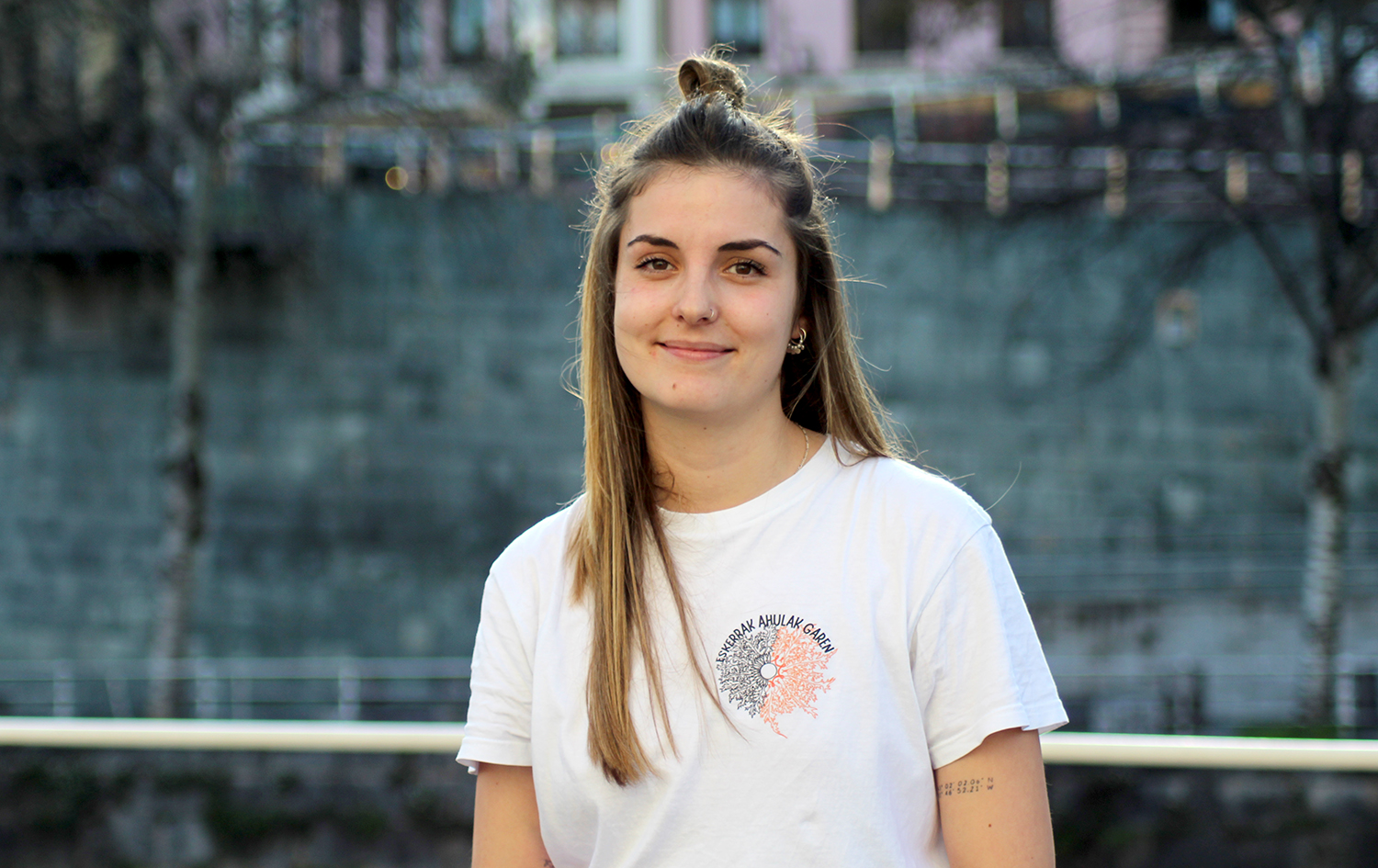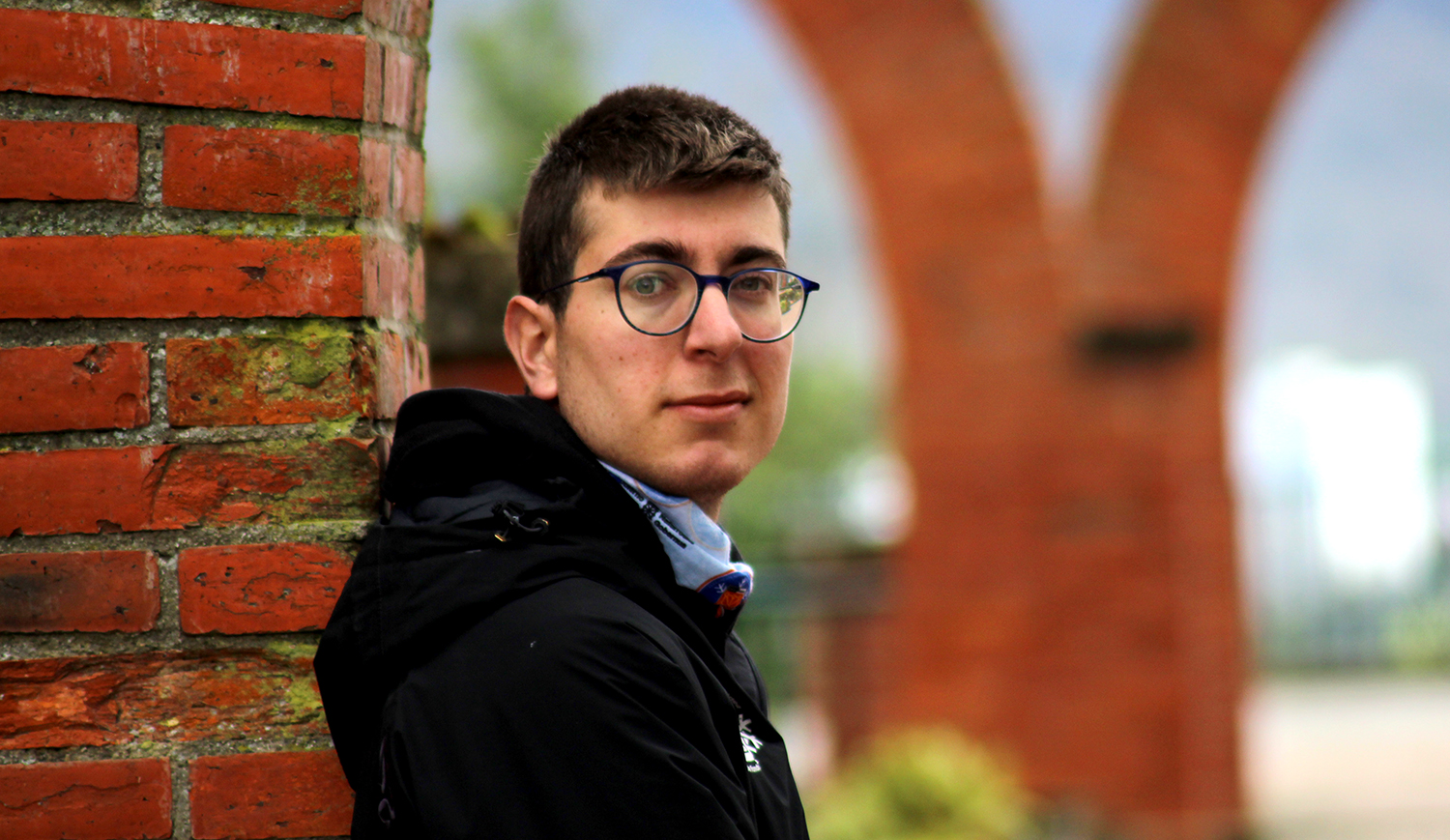"We can't decide without content"
- “Many have the impression of... Many just for appearance...”

“The idea of the wild boy who carried me as a child has been destroyed and I have as a replacement the post-portrait of a girl who has gone wrong.”
When I was a child, I only had the impression of being a Jule. Neither the feeling of being a child, nor the awareness of everything that was coming. I felt very identified with the jungle boy. In their imaginary, they rarely match who you see and who and how society unites you. Managing this shock conditions your mental and emotional balance. For me it has not been particularly contentious, but for many it is an unwavering war. What are we, what do we think we are or what others think of us? What happens if society doesn't want or doesn't want to see what it wants to be? Because speech is not enough in the struggle to get to what you are or what you want to be. We're discursive, but discourse doesn't make life more enjoyable.
What is the place of the state in life?
In general, I'm very structuring. In the field we call politics, one of the most powerful structures is the State, which has the ability to recreate society in one way or another, which guarantees survival today and here... It is not a question of whether or not this powerful structure is a state, but of understanding the consequences of structures for society and personal identities. That is what we have to deal with. Because we're a pretty structured people. In Hegoalde we are very politically institutionalised, and in Iparralde all the political colours underline the need and importance of a structure. States or structures are not useless in terms of society. Their political culture is reflected in the implementation of structures by societies. Not all democracies are equal, not all capitalisms are equal.
Have we not replaced state building with nationalisation?
Yes, but descriptively what we've done is state construction. With suspicion and mistrust towards the state and institutions of great capacity, national or popular construction has been used, but the winds change. Debates of the European Parliament Why? Because the national or popular construction of Ditxoso has begun to relate to well-being. The Basque public school, being able to live in Euskera, receiving the appropriate social services... besides being a national construction and a national construction, are a state construction! Let us not deceive ourselves, we have state institutions in the South, and this people has a historic tendency to institutionalize what has been created from society. Therefore, from the external point of view, it is evident that here a large state industry has been made. We need to introduce the word into the speech.
Can we survive without the Basque state?
Not long-term and with medium-term survival. The present Basque society is neither 500 years old, nor 200, nor 50 years old, and if being Basque in its broadest sense means poor survival, many will cease to be Basque. Without the Basque State we will hardly have a quality survival. What is more, without the Basque State there will be no Basque democracy. We do not know what the states will become in the future, but how are we going to make the demands of Basque society a reality without the Basque state? If these demands are not met, they may make us a hole under the umbrella of diversity as a culture or a museum entity, but we will not be a political community. That is why we have to fight to be a political community, not to perpetuate ourselves as a cultural example.
Does the State have the right to decide on compulsory cessation?
Yes, above all, because the right to decide is understood in several ways. It can be understood as a right, but it is not yet. I regard this as a concept that enables a political project to be carried out. So if we decide, we will have a Basque state, and if we decide that we do not want a Basque state, we will not. When executed, when people decide, it becomes a right. At the moment, it is a claim, a call or a claim. That is why we have to learn from the Scots how to transform the path of the right to decide in a process of information and training. It has been years of speaking people to people, organising consultations in a very structured way, writing the White Paper ... The decision-making process has been completed in substance. The decision is the content and the democratic society is built by working together that mass of content. We need to train, inform and empower people. We cannot decide without content. Added to this is the capacity of the Catalans to mobilize. They have turned the relationship of forces between the parties and civil society around. To move forward, we should free social movements from party slavery.
Opponents of the State proclaim that the State and violence are synonymous.
The monopoly of the legitimacy of violence lies with the State. In other words, by law only the State can exercise force. So we must not forget that, just as the State exercises violence, we practise it every day. Society is very violent, the community has nothing to say. If there was no violence in society and in the community, there would be no violence in the state. It is true that I could not come to genocide and yes to a state, but I relate it to power, not nature. Violence, prior to the state, continues with the dismantling of states and the destruction of Libya. The problem is that the concept of violence is confined to very specific areas, there are things we consider violence and others do not. We live in liberal systems and all the wise men who have theorized about democracy have had as violence what comes from outside. We have to turn it around. If we do not have the means to identify the violence with which we are moving, we are in vain. For a 40-year-old white man to speak in an assembly and not a 70-year-old housewife is tremendous symbolic violence. It shows how cultural, economic and social power is reinvented. Those power relationships are constant, and whether or not we're a state, we have to identify our violence, make those power relationships more flexible, redistribute capabilities and reduce violence.
You claim the Basque feminist state.
This requires rethinking the foundations of the democratic system. Democracy is not only liberal, but patriarchal, and therefore the figures of both men and women are built in a context. So where are rational men born, dressed and qualified? In the public space, in the terrain we consider among equals, in the playing field that allows a modern state. In order to maintain it, a space between different is essential: the private space. In this space of different enter all the others: women, children, immigrants... Rousseau explained very well that the woman had to move in the private field, how she behaved, what attitude she adopted. Moreover, democracy is capitalist. Consequently, the occupation of the public road is remunerated, provided with resources and the exercise of socio-economic rights is guaranteed to those who hold private property in order to guarantee equality. On the contrary, since private space is not a space between equals, political and socioeconomic laws are not enforced, they are not paid, and that vast and varied space is called reproduction. Male production, female reproduction. That is how we are free. These divisions must be thrown out, reinvented, otherwise women will remain in precariousness, with reduced wages, in disadvantaged areas and in the poor. We need new hegemonies to bring down the old ones.
What do people want when proclaiming the Basque State, if a different State, or a State that appears “Basque” where it places “French” or “Spanish”?
Society is conventional and, on the one hand, thanks to the fact that, if not, there may be no society. Thus, society has the inertia of reproducing hegemonic ideas, tendencies and attitudes. When people represent the Basque state, they draw a more honest state of greater well-being, because otherwise I would not want to leave what they have now, and because we tend to think that we are more noble than others. That doesn't worry me. I know that most will not be a feminist, much less an extreme feminist like me, and I know that claiming “feminist state or nothing” is betting on the Spanish or French state. The debate is not a state or a state. Each is his own, but we have a state. What would be the advantages of a supposed Basque state? We would have the linguistic benefits that we do not have now, it would be a structure better adapted to our political culture, and I believe that, being little, it would be easier to promote minority projects. We cannot deceive ourselves, people will not be mobilised massively by a socialist or feminist Basque state, but perhaps by a Basque state. We have to think about mobilizations on a massive scale.
We have to think about mass mobilizations, but subalternity is what tells us that we are Euskaldunes.
Behind the Euskaldun word is a problem. A large majority use it to talk about an identity, not to echo what they know in Basque. That is why we should perhaps use the word Euskaldun in the sense that people are managing, recognize that we are talking about Basque and enough. For the Basque being to refer to an identity, we must bear in mind that identities are figures in permanent struggle, and at this moment the Basques are a subordinate identity. If we want to get out of that subalterity, we will all have to identify that Basque subaltern identity. That's the strategy. When you consider yourself a subaltern, you start the fight. It is no coincidence that Euskera and feminism have recently approached each other. If the person who works in Euskera, or the Basque, understands that he or she experiences his or her problems because he or she is subordinate, he or she will inevitably turn to the currents that have identified and analyzed subalternity and feminism analyzes in a very integrative way all the faces of subalternity.
The alternative is to connect the fires on the shore?
The fragmentation between knowledge and disciplines is nothing but a consequence of the neoliberal capitalist system. Thus, this division can serve for analysis, but not for the formulation of structural proposals. You make policy when you do everything sectorized at once. This means making alliances, social alliances between movements, but also linked to knowledge. That's why I say feminism is the integrative thing, it's an umbrella for all struggles related to subalternity. Whether you're black or white, poor or rich, feminism gives you tools to identify power relations everywhere. All of this becomes an impressive sewn system, while helping you build something systematic to oppose the system.
Are political times coming?
Simultaneous changes lead to the crisis. We are in the midst of crisis, both objectively and subjectively. That's what the data says, and that's what people experience. The parliamentary crisis of democracy and the economic offensive that has spread throughout Europe have caused alarm bells to rise. For years, the parliamentary crisis of democracy has been covered with money, but as salaries run out, all the holes have been seen. Parliament, representative democracy, does not work. It is clear that decisions are not taken by our authorities, but by the lobby or by private hands. That causes mobilizations everywhere. A lot of people have come together in politics. Not in the ways that there have been so far, but people are politicizing. People have to be aware that we live in very political times. In the next two years, many decisions will be taken that will influence the next 30 years.
1981ean Donostian jaioa. EHU eta Cambridgeko unibertsitateetan kazetaritza eta zientzia politikoak ikasia eta filosofian doktoratua. Egun, EHUn zientzia politikoetako irakaslea eta Gobernantza eta ikasketa politikoak masterreko zuzendaria da, Cambridgeko Unibertsitateko Journal of Politics-eko editore elkartu izateaz gain. Prentsan zein aldizkari espezializatuetan argitaratzen ditu bere lanak eta Tractatus (Susa, 2014) poema liburuaren egilea da. Polirika blogean izango duzue bere berri.
Elkarrizketa hasi orduko orri zuri eta bolaluma baten bila jaikitzeko baimena eskatu digu Julek. Mahai gainean utzi, bi hankak sofan gurutzatu, eta haizeak hostoari nola erantzun die galderei. Elkarrizketaren hondarrean, orria zuri dago, bolaluma lo, eta Julek erantzunak, zigarroaren kea lagun, airean idazten zituela iruditu zaio Dani argazkilariari.
Errepikatu nirekin: Sara Millerey. Ez dezagun ahaztu bere izena. Transfeminizidioaren biktima da Millerey: gorrototzaile transmisogino batek torturatu zuen, besoak moztu zizkion eta bizirik bota zuen ibaiertz batera. Bi orduko agoniaren ondoren hil zen.
Errazagoa da J.K... [+]
Many Basque feminists have been disappointed to learn that writer Chimamanda Ngozi Adichie has externalized pregnancy, meaning that a surrogate has fertilized her baby for money.Adichie is the author of the essay We should all be feminists, among others. They have ignored the... [+]
Indartsua, irribarretsua eta oso langilea. Helburu pila bat ditu esku artean, eta ideia bat okurritzen zaionean buru-belarri aritzen da horretan. Horiek dira Ainhoa Jungitu (Urduña, Bizkaia, 1998) deskribatzen duten zenbait ezaugarri. 2023an esklerosi anizkoitza... [+]
Gozamen aparta bezain deskribatzeko zaila dakar, norbaiten hitzak irakurri edo entzun ostean, zera pentsatzeak: “Horixe zen neu aurreko hartan azaltzen saiatu nintzena!”. Idazlea eta itzultzailea da María Reimóndez, eta galegoz aritzen da, hizkuntza... [+]
Orain arte desgaituak ez diren pertsonekin lehiatu da Uharteko Ipar Eski Taldeko Eneko Leyun eskiatzailea (Iruñea, 1998). 2024-2025 denboraldian, lehenengo aldiz parte hartu du Adimen Urritasuna duten Pertsonentzako Iraupeneko Eskiko Espainiako Txapelketan. Urrezko... [+]
Joan den urte hondarrean atera da L'affaire Ange Soleil, le dépeceur d'Aubervilliers (Ange Soleil afera, Aubervilliers-ko puskatzailea) eleberria, Christelle Lozère-k idatzia. Lozère da artearen historiako irakasle bakarra Antilletako... [+]
























